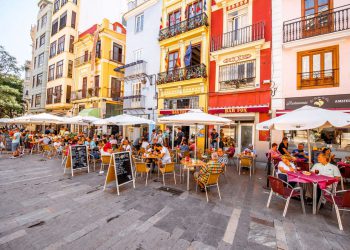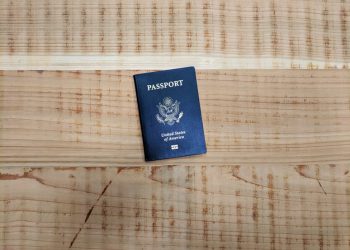[elementor-template id=”3753″]
This is dummy title and will be replaced with real title of your post
Image with size : 1140×570
Image: Alessandra Tarantino/AP Photo
In response to the mounting threat of the Omicron strain, Italy increased its restrictions for all travelers in December.
Arrivals from outside the European Union must now take a COVID test before entering the nation. A negative PCR result obtained within 48 hours of arrival or a negative antigen test obtained within 24 hours of arrival can be presented.
This is in addition to displaying your EU Digital Covid Certificate (EUDCC), sometimes known as a “green pass,” which verifies that you have been completely vaccinated or have recovered from COVID-19.
Continue reading to learn about the rules for non-EU travelers.
The Italian Council of Ministers announced that all non-vaccinated travelers will be subjected to a five-day quarantine at the address listed on their Passenger Locator Form. They can then test for release.
What are Italy’s testing requirements?
All travelers who have been completely vaccinated against the virus must now present a negative COVID test before traveling to Italy under the new guidelines.
Unvaccinated travelers, on the other hand, must take a pre-departure test and be quarantined for five days after they arrive.
If they are traveling with adults who have been vaccinated or who have recovered from Covid, children under the age of 12 are not subject to the five-day quarantine requirements.
Italy’s state of emergency has been extended
Italy has a lower COVID infection rate than other Western European countries such as the United Kingdom, France, and Germany. However, with an estimated 20,000 new cases each day and rising, the country is tightening domestic controls to combat the highly transmissible omicron form.
Italian ministers opted in December to extend the country’s State of Emergency until March 31, 2022.
This means that the national government and regional governments will both maintain the ability to enact new laws on short notice if the health situation warrants it.
Explaining the ‘Super Green Pass’
Residents and visitors to Italy must have a ‘Super Green Pass’ to enter most indoor areas under this law.
This new sort of green pass went into effect on January 10th, and it requires confirmation of vaccination (currently two doses) or virus recovery within the previous six months.
The Super Green Pass, which is already required at cinemas, theaters, and stadiums, cannot be obtained with a negative covid test result, thereby excluding persons who have not been vaccinated.
It’s also required to dine in restaurants, both indoors and out, as well as to enter hotels, ski lifts, museums, archaeological sites, gyms, and swimming pools, as well as a variety of other activities ranging from weddings to sporting events.
It is also required on all local, regional, and national public transportation, including planes, trains, ships, buses, trams, and subways.
What is the procedure for obtaining a Super Green Pass?
A Green Pass can be obtained by testing negative to a fast COVID-19 test, which is accessible at local pharmacies and testing centers; however, keep in mind that this will no longer get you into most venues.
Your test results will be printed and a unique code will be emailed to you by the test provider. Then you must go to the government’s website (in Italian) and fill out your information. ‘Utente senza tessera sanitaria’ (‘User without a health card’) is the option to choose.
You’ll need to provide the kind and number of the ID you used to get the test, as well as the day you took it.
Source: euronews.com
Related Posts
edit post

Updates
Travel bans in Italy update, including tests and the Super Green Pass
edit post

Relocation
The new remote working hotspots in Spain for digital nomads
edit post

Immigration
Registration for H-1B visas for the fiscal year 2023 will begin on March
edit post

HR
4 strategies for attracting and retaining young employees in the tech industry
edit post

Immigration
A tax-funded legal advice program for US immigrants
edit post

Immigration
